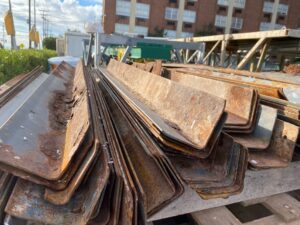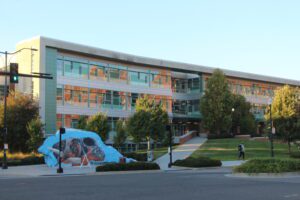RETIRED ARCHITECT TAPS INTO POTENTIAL FOR VIRTUAL REALITY ART PROJECTS

Created in Second Life.
Does technology really stifle creativity? Do we miss out on real world experiences when our eyes are glued to our screens? Perhaps not. Architect David Denton argues that community and creativity are alive and well in the virtual world – and that technology may even cast doubt on the future of communal spaces like art museums.
Denton discovered the game Second Life from a New York Times article
about the game, shortly after being diagnosed with Parkinson’s. Denton realized that he may not be able to work in the field of architecture in a conventional way, and so turned to virtual reality for assistance. And from then on, Denton has worked on many architectural projects with the use of the game.
A benefit of Second Life is the opportunity for community within it, where many people can come together from across the world to create art that’s usually not possible outside the game. It’s collaborative, rather than competitive, gaming.
“Second Life has a very interesting culture. One of the first things that impressed me is how much people help each other out. If you need to learn how to do something, you can find someone in Second Life who is willing to teach you how to do it,” Denton said. “And that’s not true in the real world. I would say that there is a very strong community among artists in the virtual world, more so than the real world.”
The idea of a community coming together to create art is the basis for Denton’s latest project, for the Knoxville Museum of Art. The entire exhibition will reside within Second Life. With virtual worlds, there is opportunity a community to create entire environments with art, as opposed to traditional museums. And with the recent development in VR usage in video games, it could create a completely immersive experience. Some artists have taken the leap into VR to create and are open to explaining its usefulness, including abstract artist Godfrey Meyer III. Most of these artists encourage self-taught art, and are open to new ways to experience art.
“The more senses that are involved in an experience, the more profound it is and the more likely you are to retain it. If you can smell, feel, and see something all at once, it has a much greater effect on your life,” Denton said.
Citing architect Frank Gehry’s tendency to “defy categorization” in his architectural work, Denton described how museums are traditionally “white and rectangular spaces, in which the architecture does not compete with the art. They are traditionally neutral spaces where the art dominates. Denton’s aim to explore the idea of future of museums would allowing the museum itself to be a work of art. It does not overshadow the art inside, but instead is complementary to it. Denton is not specific with his goals for creation in Second Life – he goes where the art takes him.



